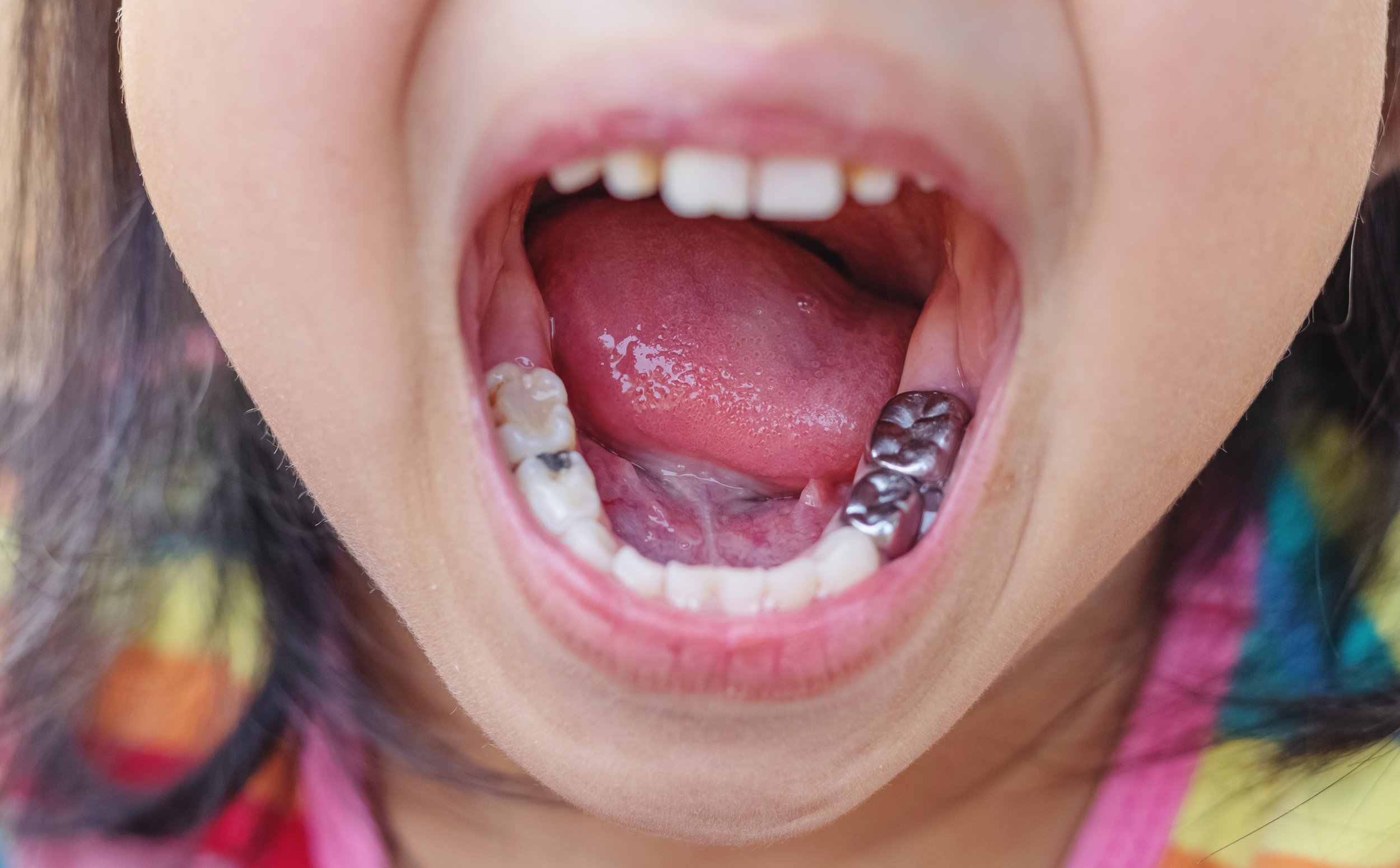Understanding the Importance of Tongue and Lip Ties in Infants: What New Parents Should Know
As a new parent, you want to make sure your baby is healthy and comfortable. While you may already be familiar with common dental topics like teething and brushing, one less-discussed but equally important topic is tongue and lip ties. These conditions can have a significant impact on your baby’s oral development, feeding, and even speech as they grow. At Kids Dental Spot, we’re here to help parents in Anaheim understand how tongue and lip ties can affect their child and what steps can be taken to address them.
What Are Tongue and Lip Ties?
A tongue-tie (ankyloglossia) occurs when the thin piece of tissue (frenulum) under the tongue is too short or tight, restricting the movement of the tongue. Similarly, a lip-tie happens when the tissue connecting the upper lip to the gums is too tight, limiting the ability to move the lip. Both of these conditions can affect an infant's ability to breastfeed, bottle-feed, and eventually their speech and oral health.
How Do Tongue and Lip Ties Affect Your Baby?
Tongue and lip ties can create a variety of issues for infants and young children, including:
Difficulty Breastfeeding: Babies with tongue or lip ties may have trouble latching properly, which can lead to inadequate feeding, slow weight gain, or frustration during feeding sessions.
Speech Development Issues: As your child grows, a restricted tongue or lip movement can impact their ability to make certain sounds, potentially delaying speech development.
Dental Concerns: In some cases, untreated lip ties can contribute to the development of a gap between the front teeth or increase the risk of cavities by trapping food and bacteria in the area.
What Should You Look For?
If you’re concerned that your baby might have a tongue or lip tie, there are a few signs to watch for:
Feeding Struggles: If your baby has difficulty latching, makes a clicking sound during feeding, or seems unsatisfied after eating, these could be signs of a tie.
Breastfeeding Pain: For breastfeeding mothers, tongue and lip ties can lead to nipple pain, cracked nipples, or a sense that the baby isn’t feeding efficiently.
Speech Delays: As your child grows, difficulties with speech articulation could indicate an issue with the mobility of the tongue or lips.
If you notice any of these signs, it’s a good idea to consult a pediatric dentist in Anaheim for an evaluation.
How Are Tongue and Lip Ties Treated?
At Kids Dental Spot, we offer evaluations for tongue and lip ties, and if necessary, we can help guide where to get a minimally invasive procedure called a frenectomy to release the tissue and restore full movement. The procedure typically involves using a laser or surgical tool to snip the frenulum, and recovery is usually fast and uncomplicated.
The Benefits of Treating Tongue and Lip Ties
Treating a tongue or lip tie early can help prevent feeding issues, support speech development, and ensure proper dental health. Here are a few key benefits of early treatment:
Improved Feeding: Babies are often able to latch more effectively and feed comfortably after the procedure.
Better Speech Development: Early intervention can help your child avoid speech issues as they grow and develop their language skills.
Dental Health: Proper tongue and lip movement support normal dental development, reducing the risk of misalignment or cavities down the road.
When Should You Bring Your Child in for an Evaluation?
If you suspect your baby has a tongue or lip tie, it’s best to schedule a consultation with a children’s dentist in Anaheim as early as possible. At Kids Dental Spot, we recommend bringing your child in for their first dental visit in Anaheim by their first birthday. During this visit, we can evaluate your child’s oral health, check for any ties, and discuss any concerns you may have about feeding, speech, or dental development.
Why Choose Kids Dental Spot?
At Kids Dental Spot, we are committed to providing gentle, compassionate care for your child’s unique needs. As the best pediatric dental service office in Anaheim, we understand that each child’s oral health journey is different, and we’re here to guide you every step of the way. From early evaluations for tongue and lip ties to ongoing preventive care, our goal is to help your child develop a healthy, beautiful smile.
Final Thoughts
If you’re a new parent in Anaheim concerned about your baby’s feeding, speech, or dental health, it might be worth checking if a tongue or lip tie is the underlying cause. Early diagnosis and treatment can make a world of difference for your child’s well-being. At Kids Dental Spot, we’re proud to be your trusted partner in pediatric dental services space in Anaheim, offering the expertise and care you need to give your child the best start in life.
Call Us Today!
Ready to schedule your baby’s first dental check-up? Contact Kids Dental Spot, the child-friendly dentist in Anaheim, to schedule a consultation and learn more about how we can help your child’s oral health thrive!
Kids Dental Spot is a children’s dental office focused providing pediatric dental services to patients in Anaheim, California. Serving kids, children, infants and adolescents in the heart of Orange County and nearby neighborhoods, such as: Fullerton, Brea, Garden Grove, Santa Ana, Buena Park, Placentia, and Orange.
Pediatric dentistry provides dental care for children from infancy through their teenage years. Our experienced children dentists focuses on gentle, kid-friendly treatments that ensure your child’s comfort and promote long-term oral health for our pediatric patients. From routine cleanings and preventive care to emergency dental services, we are committed to keeping your child’s smile healthy and strong. We understand the unique needs of young patients and strive to create a fun, welcoming environment that makes every dental visit a positive experience for Anaheim families.
Written and Medically Reviewed by Dr. Atiya Bahmanyar, DDS (Board Certified - Doctorate of Dental Surgery)


